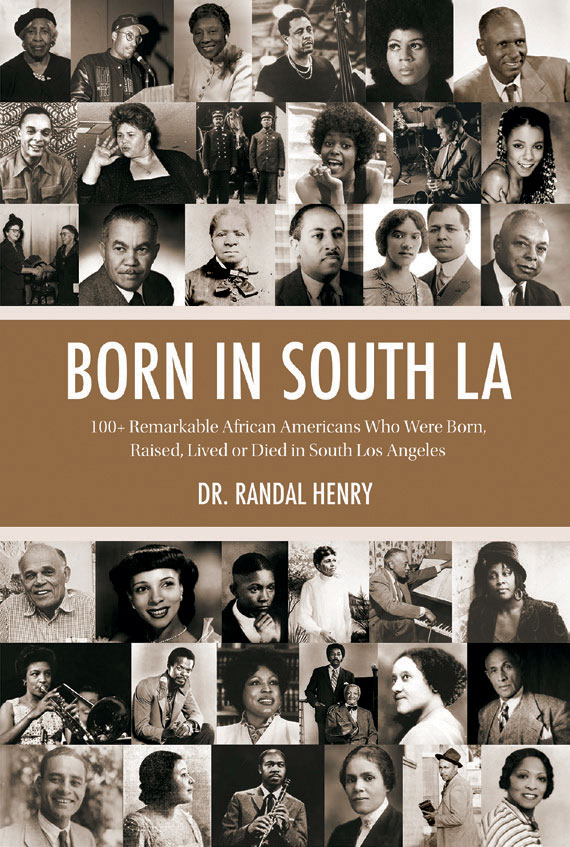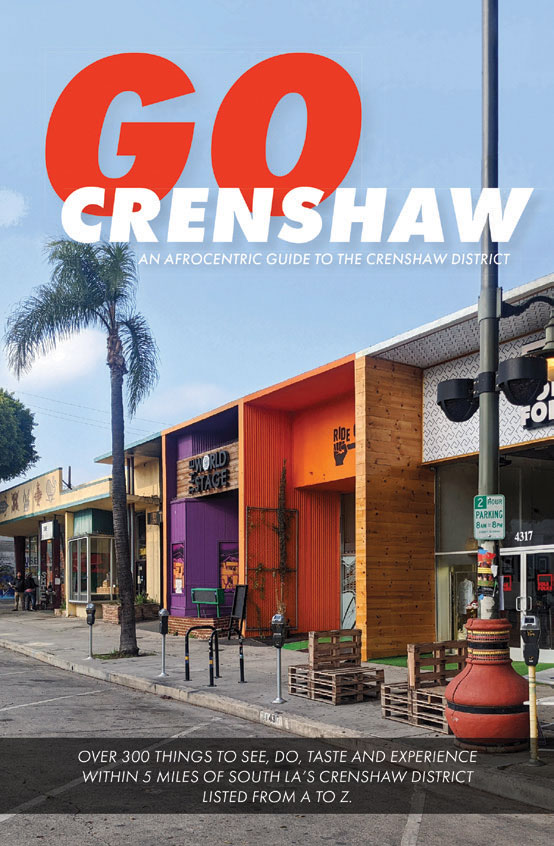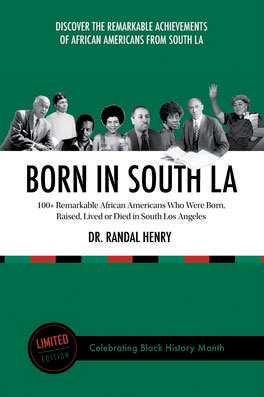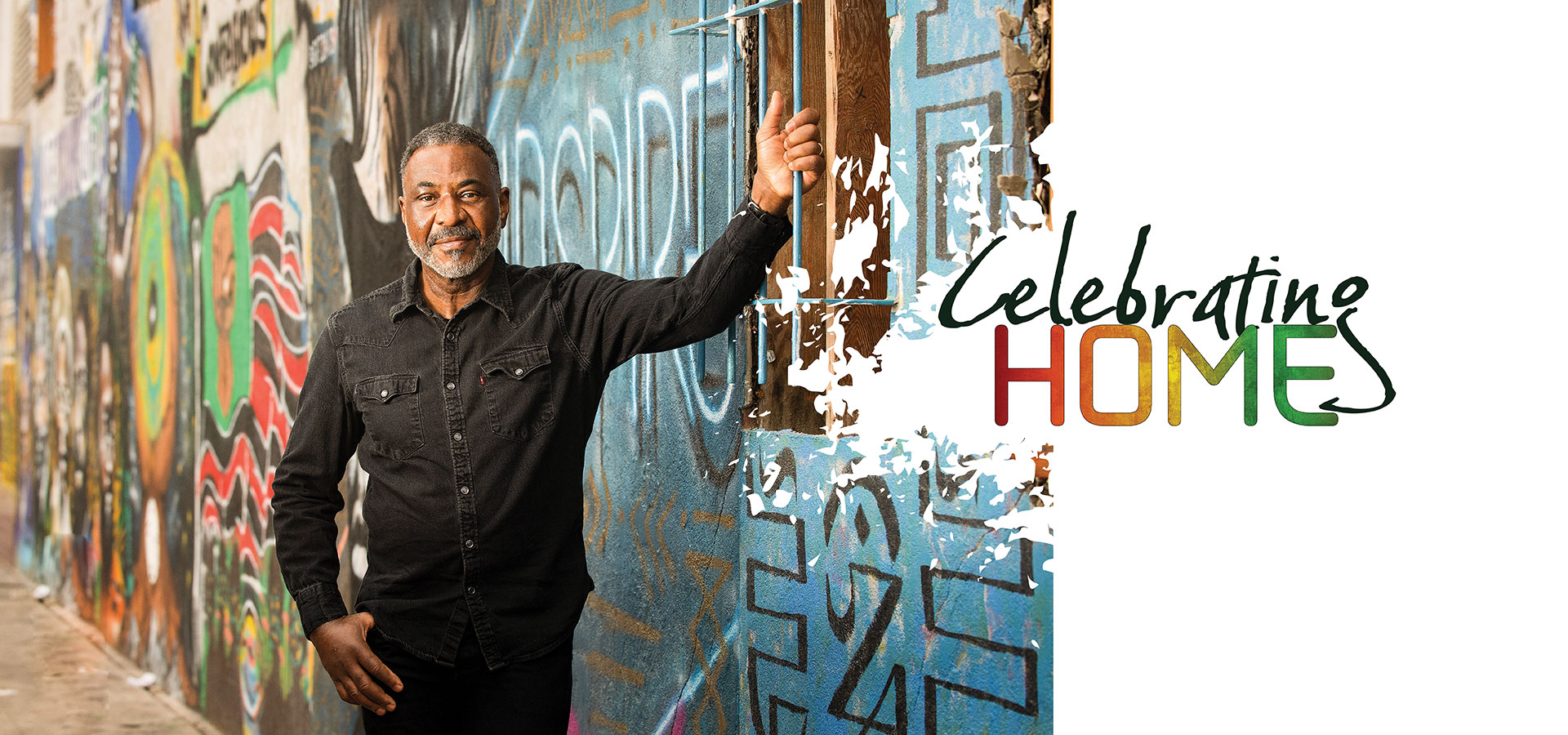Celebrating Home
Alumnus Randal Henry Captures History, South LA Love in His Books
By Melanie Johnson
An ancient unfinished obelisk a half a world away inspired Randal Henry to finish what he started.
Four years ago, the alumnus visited the site of the Unfinished Obelisk in Aswan, Egypt, left by ancient Egyptians thousands of years ago.
“They shared how they learned to build obelisks and the issues that came up that made them unable to finish some and able to complete others, and I was very inspired by that,” says Henry (’90, political science). “I thought, ‘I have unfinished obelisks.’ I thought about how the Egyptians found value in an ‘unfinished’ project and I thought, ‘What can I learn from projects that I’ve started but have not finished?’”
Henry’s obelisks were in the form of unfinished book manuscripts and ideas, partially completed stories and lists capturing the history and vibrancy of his native South Los Angeles and LA’s Crenshaw District, where the husband and father of two sons has lived for 20 years.
“I was really motivated by that trip and upon my return to the states, I reflected upon how the Egyptians presented themselves, their history and their culture. I decided to dust off a few of my ‘unfinished’ ideas.”
Henry has published four books since 2021. “Born in South LA” highlights more than 100 people with ties to that area of the city — a historical who’s who of sorts. The book features notables like Famous Amos cookie founder Wally Amos, Lewis G. Green, who challenged voting restrictions in LA in 1870 to become the city’s first Black voter, and pioneering TV show host, pianist, vocalist and composer Hadda Brooks, dubbed the “Queen of the Boogie.”
In 2022, he published “Go Crenshaw: An Afrocentric Guide to the Crenshaw District” and “C is for Capoeira: The Basics of Capoeira from A to Z,” a book about the Brazilian martial art. His latest publication, “Go South LA: An Afrocentric City Guide to South Los Angeles,” published in June.
Henry, trained in community health sciences, epidemiology, health services research and implementation science, founded his own consulting firm called Community Intelligence. Henry’s work is focused on increasing the capacity of vulnerable communities — and the organizations that serve them — to identify conditions that impact public health, mental health, safety, and/or community wellbeing; respond to those conditions in innovative ways; and evaluate the collective impact of their efforts.
While his career has focused on researching and authoring scientific reports on everything from racial disparities in diseases to firearm-related injuries, his books provide a different outlet.
“The books are a part of me expressing my more academic, historian and artistic side and less of my public health, scientific side,” he says.
Henry’s wife of 20 years, Manal Aboelata, also works in public health, serving as the deputy executive director of the Prevention Institute, a nonprofit focused on promoting disease prevention and health equity. She credits Henry’s books with helping people to see South LA in a different light.
“People are always approaching South LA from a negative. It’s always about what it needs, what it doesn’t have,” she says. “These works are providing a counternarrative. Randy has centered Black lives and Black leaders right here in South LA. He talks about the genius here, of polishing the apple we already have.”
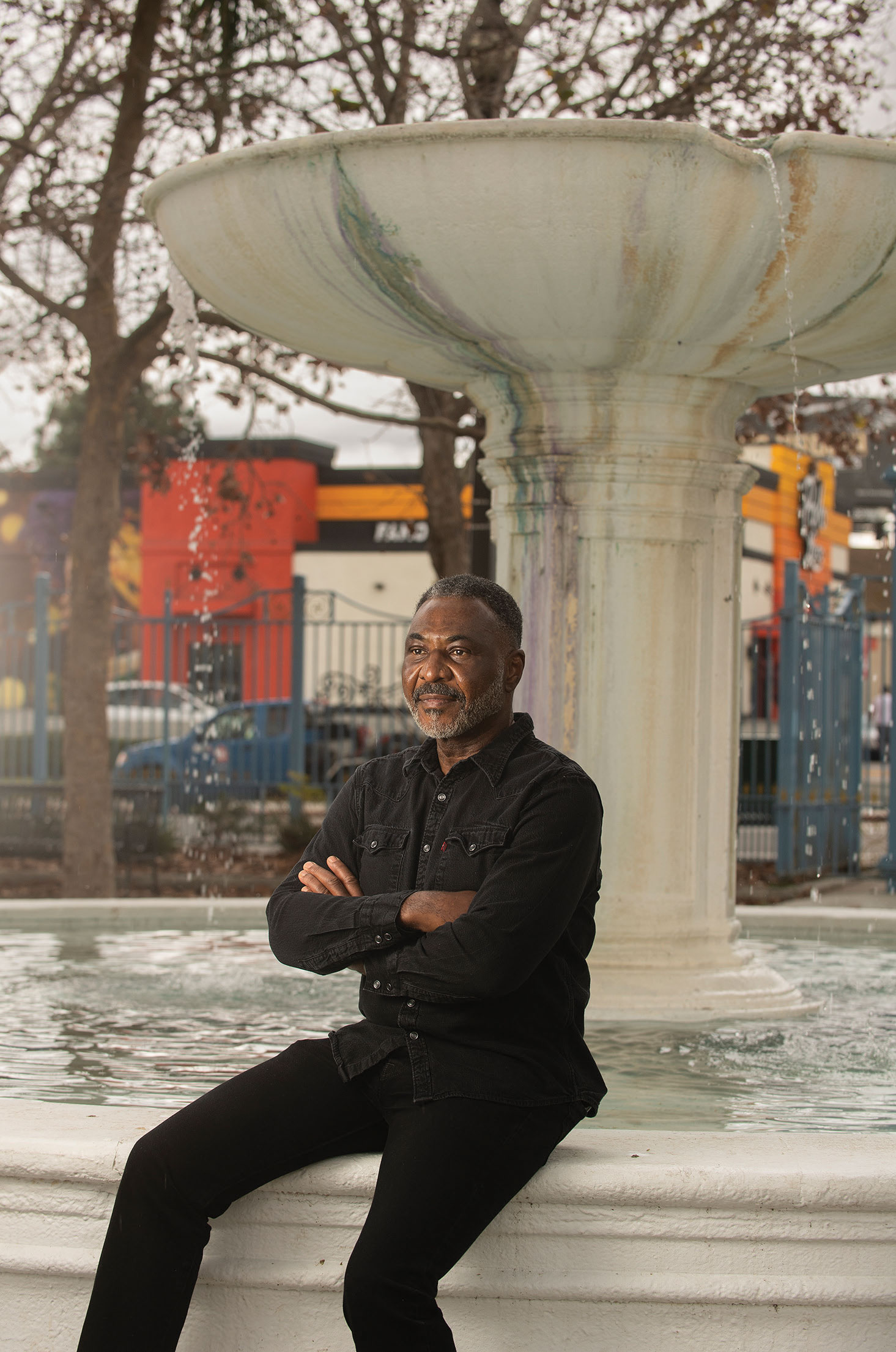 Henry, the second youngest of six, was born and spent his early years in the Watts/Willowbrook area of South LA. His parents divorced when he was young, and the family moved around a lot, ultimately landing in the San Gabriel Valley. He graduated from Nogales High School in La Puente and has an older brother, Ralph Henry (’76, behavioral health), who also is a CPP graduate.
Henry, the second youngest of six, was born and spent his early years in the Watts/Willowbrook area of South LA. His parents divorced when he was young, and the family moved around a lot, ultimately landing in the San Gabriel Valley. He graduated from Nogales High School in La Puente and has an older brother, Ralph Henry (’76, behavioral health), who also is a CPP graduate.
When it was his turn to go to college, Randal Henry attended Cal State Long Beach for one semester but dropped out for financial reasons.
While working as a security guard on the night shift at Queen of the Valley Hospital in West Covina, Henry found out the hospital had a tuition reimbursement program.
He applied to Cal Poly Pomona and was accepted provisionally, given two quarters to pass his classes before he was fully admitted. He struggled with full-time work and school and found himself on academic probation after the first quarter, but a couple of professors and a counselor challenged him to do better.
“Despite what my grades were, they separately told me, “Randal, you’re a really smart guy, but something is going on in your life and you need to decide if you’re going to focus on school or focus on other things,’” Henry says.
With renewed energy, he learned how to secure student loans, took jobs as a cook in the dining hall and a resident advisor in the residence halls, and got involved in student government and various clubs.
Another faculty member, the late Bert Dorsey Hammond, offered him an eye-opening opportunity. Hammond, a counselor and professor at the university, served as a special envoy for the Frenchspeaking delegation at the 1984 Olympics in Los Angeles and offered Henry a job to drive the delegates — an opportunity to meet people from around the world.
“Once I embraced Cal Poly Pomona, I fell in love with it,” Henry says. “I enjoyed being there and taking advantage of everything it had to offer.”
Although he came to college with a confidence deficit, it soon dissipated with the support and encouragement of mentors.
He recalls one professor telling the class that there was no difference between a student from his class at Cal Poly Pomona and one from Harvard, since both were using the same curriculum, books and grading criteria. Henry remembers the students laughing, but after the laughter subsided, the professor continued.
“He said, ‘If you can do well in this class, you can do well wherever you go,’” Henry says. “To my mind, the challenge was on. That led me to really focus on my grades. By doing well at Cal Poly Pomona, especially in my last two years where I aced out, I was prepared to go to any school in any program.”
After graduating, Henry went on to work as a program coordinator in health care facilities for developmentally disabled children and earned a master’s degree (1997) and a doctorate in public health (2006) at UCLA. He was as a senior research scientist for the Department of Defense and the Veterans Affairs Administration, UCLA, Children’s Hospital Los Angeles and the LA County Department of Public Health.
Besides his consulting business and his books, he is active in his community. He founded Crenshaw WALKS, an organization that aims to increase walking, biking, active transportation and multiculturalism in the Baldwin Hills/Crenshaw community and along the corridor.
Marina Scott, a marketer, web designer and photographer who recently relocated to Las Vegas from her native LA, has collaborated with Henry on several projects, including book, web and product design, as well as marketing and social media content creation.
She says that working with Henry is inspirational, and that his dedication to the Crenshaw district and South LA really shines through in every project he does.
“Dr. Henry knows South LA in a way that few do,” Scott says. “He sees it for what it was, what it is, and what it could be.”
She also worked with him on a series of reports about health disparities in the Black community called the “Black Lives Matter Series,” the Go Crenshaw website and the Go Crenshaw Wayfinding Project, which involved the reimagining and designing of 20 wayfinding signs posted along Crenshaw Boulevard that fit the neighborhood’s cultural and social environment.
In 2022, Henry created a photo installation highlighting South Los Angeles notables called The Crenshaw Walk of Fame for a two-day summer festival in the community.
Fellow South Los Angeles native Frederick McNeill, Jr. worked with Henry on the festival project, lending his expertise in marketing, development and program direction. They didn’t know each other before the project, but they connected.
“He is so knowledgeable and so on point in terms of being very direct, transparent and just easy to work with,” McNeill says. “It’s great to have someone who I can call on who is an elder in the community and has the knowledge base he has.”
For Henry, it is all about tapping his talents, interests and passions to shine a light on the rich history and multiculturalism of South LA, the love the residents, particularly African Americans, have for the community, as well as the worldwide cultural impact South LA has had on civil rights advocacy, fashion, art and more.
“I have always loved Los Angeles, California. It’s the greatest city in the world in the best state in the union,” Henry says. “In LA, I can travel the world without ever leaving home. I can see, do, hear, taste and experience cultures from around the world and enjoy great weather while doing it.”
